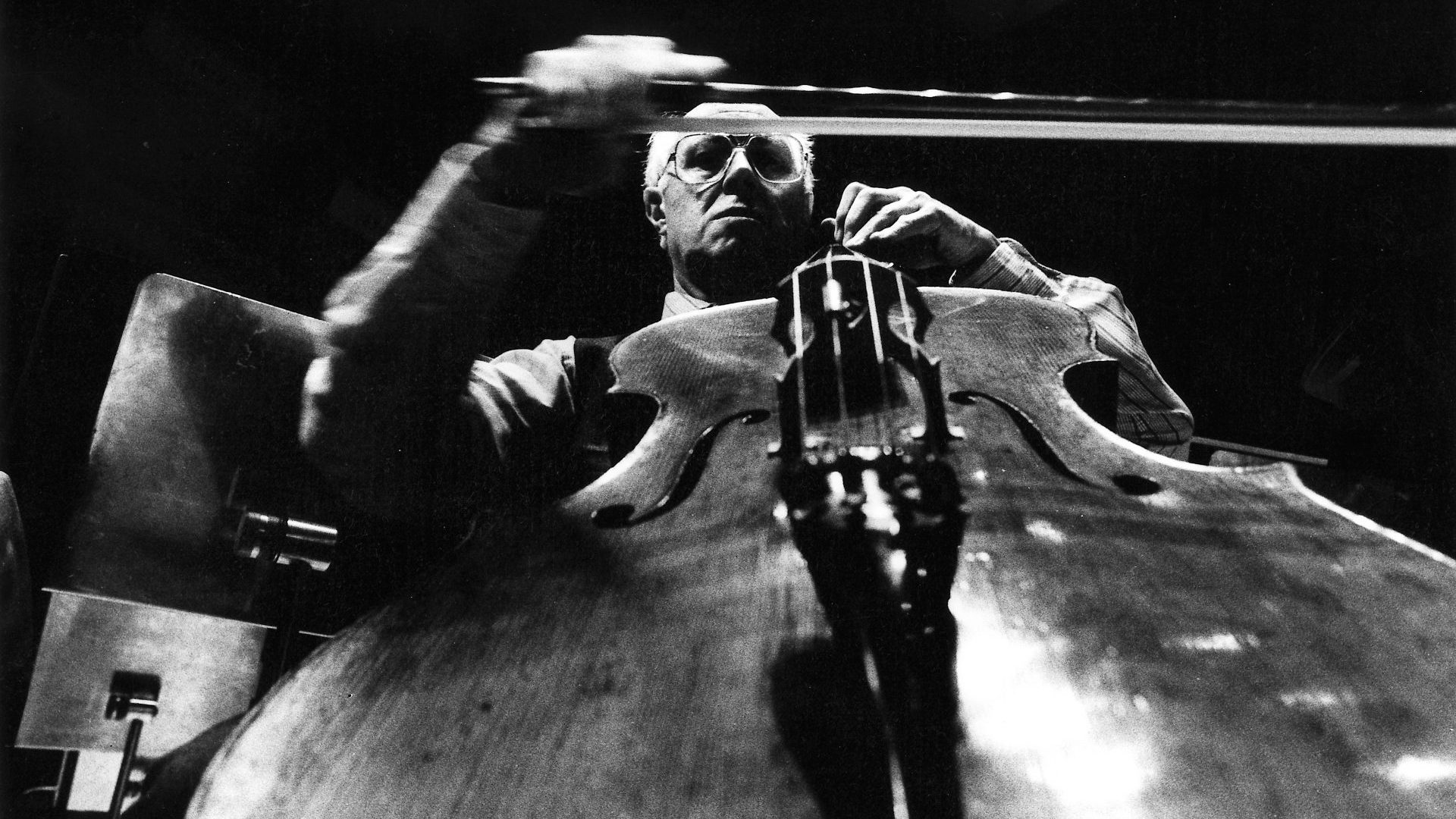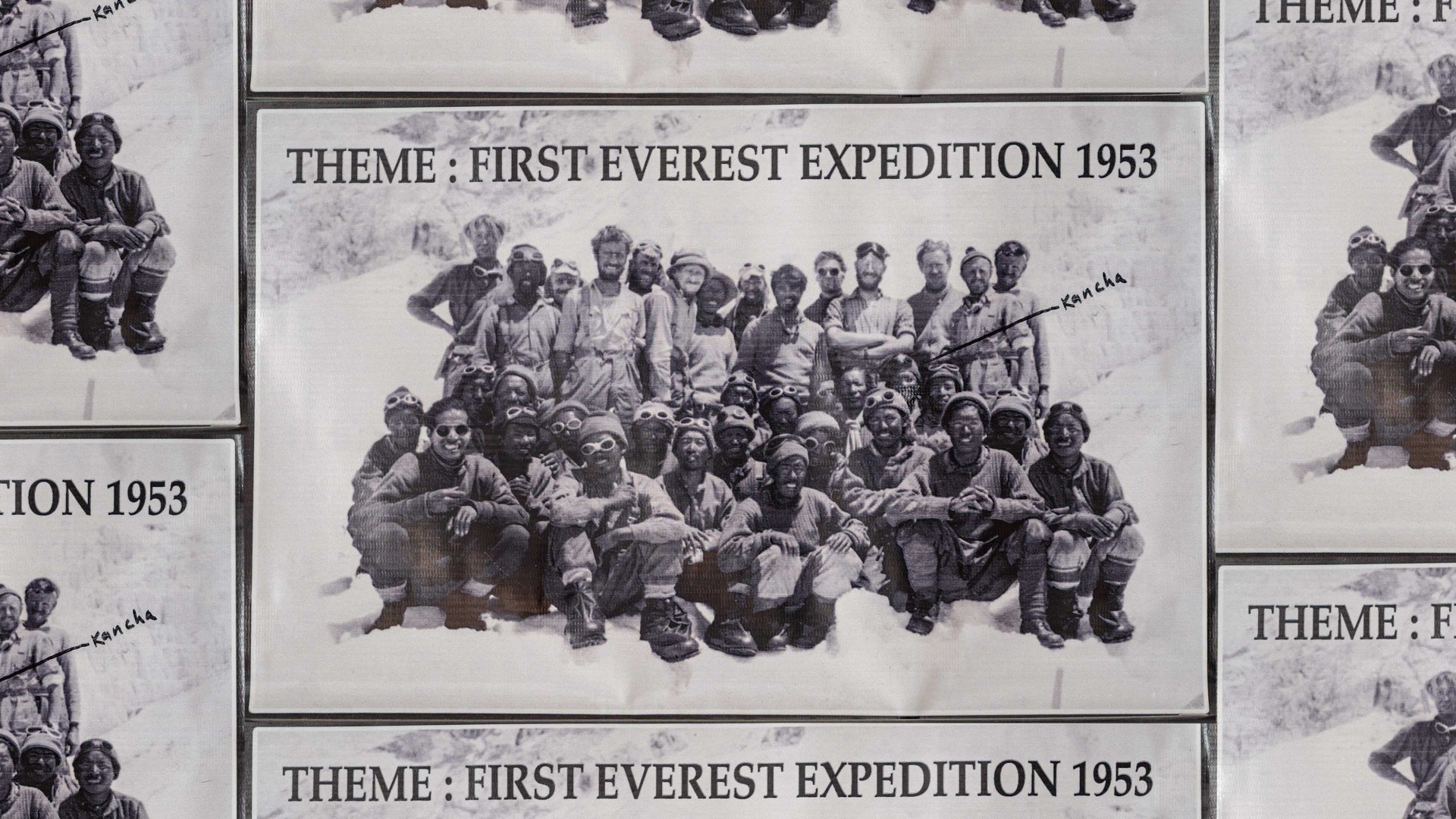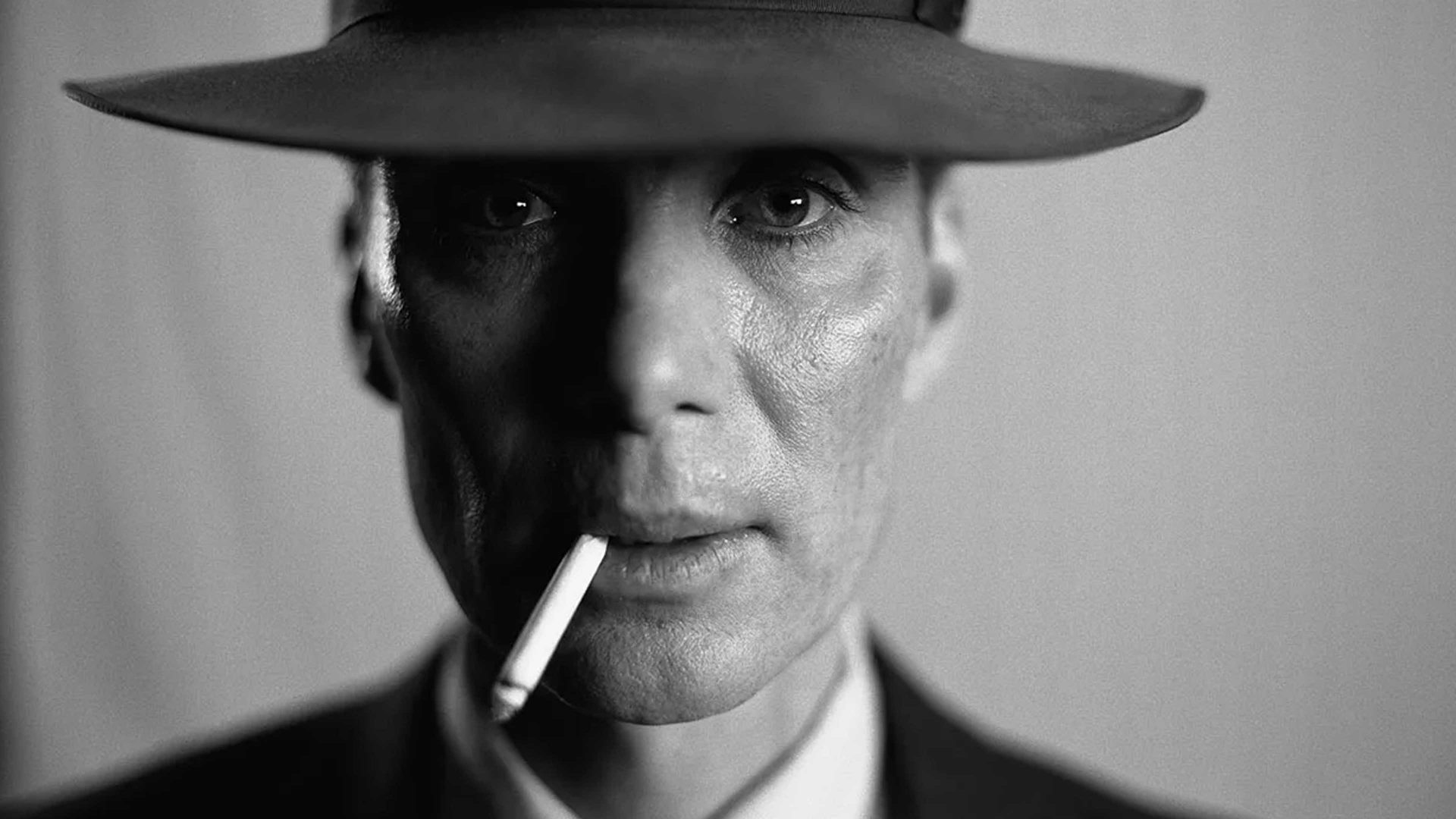On November 11, 1989, two days after the fall of the Berlin Wall, an elderly man carrying a cello arrived at a section close to Checkpoint Charlie.
“When the taxi left us I realised I needed a chair,” Mstislav Rostropovich recalled in a 2005 interview. An office chair was procured – from the redundant checkpoint itself, according to some sources – Rostropovich placed it in front of the wall beneath a graffiti cartoon of Mickey Mouse, sat down, tuned up and began to play.
To most of those wandering dazedly back and forth through the open checkpoint and the jagged gaps already smashed through the doomed concrete edifice, this might have just looked like an old man in a jacket and cardigan, a valance of white hair around his bald head, taking advantage of the crowds to busk for a few coins. When he started playing, however, it was soon clear this was something special.
Thirty-six hours earlier, the greatest cellist of the modern age had sat awestruck in his Paris apartment, watching as, live on his television, the regime that 15 years earlier had forced him from his homeland began to collapse.
Rostropovich barely slept that night for thinking about events in Berlin. He got out of bed and paced up and down, wringing his hands. He knew he had to do something; had to bear witness to the border that had defined his life now being dismantled by the people it had repressed.
A compulsion took hold, not just to see the evidence with his own eyes, but to bring the most beautiful music he knew to Berlin and let it sing out to east and west, over and through the newly porous divide. He packed some clothes, picked up his cello case and headed for Germany.
“Within 10 minutes there was a little crowd, then a television crew came passing by,” Rostropovich remembered. “I played the most joyous of the Bach cello suites in order to celebrate the event, but I could not forget all those who had lost their lives on this wall in attempting to cross over it.”
When the plaintive sound of the Sarabande from the second suite sang out from his instrument, any remaining hubbub of conversation around him soon stopped. For all the joy of a city and nation newly reconciled, here fell silent acknowledgement of the grief that had preceded it.
“When I finished playing I noticed a young man crying,” said Rostropovich. When he stood up at the end of the piece, another man walked forward and swept up the cellist in an emotional bear hug.
Three months later, Rostropovich was in Leningrad among more formal surroundings, conducting the US National Symphony Orchestra in a heartfelt and moving performance of Shostakovich’s Seventh Symphony, composed during the brutal three-year siege of Leningrad during the second world war.
A poignant piece in a poignant location, not least because Rostropovich and Shostakovich had been close friends and musical collaborators, from their first meeting in 1943 until Rostropovich left the USSR in 1974.
Two days earlier he had visited his old friend’s grave in Moscow, before performing Dvořák’s Cello Concerto at a gala concert hosted by Raisa Gorbachev, another piece loaded with personal symbolism and wider significance.
On August 20, 1968 Rostropovich had been in London with the USSR’s State Symphony Orchestra preparing to perform the Dvořák as part of the Proms series at the Albert Hall when news filtered through of Soviet forces crossing the border into Czechoslovakia, making for the capital in order to crush the Prague Spring.
When the Russian musicians took to the stage it was in an atmosphere ranging from quiet disapproval to outright hostility.
Rostropovich threw himself into the Dvořák with all his being, tears streaming down his cheeks as he, a Soviet citizen, played a composition by a Czech composer as Soviet tanks rolled through the streets of Prague. After a brief silence as the last note died away, the audience broke into a noisy standing ovation, demanding an encore.
Alone on the stage, Rostropovich obliged both the occasion and the mood of the world with the melancholy piece he would reprise at the Berlin Wall two decades later – the Sarabande from the second Bach Cello Suite.
Whatever and wherever Rostropovich played, his mastery of tone and technique and his deep feeling for the music made the instrument seem like an extension of him.
“What I value most of all in his playing is the intense, restless mind and the high spirituality that he brings to his mastery,” Shostakovich said of his friend, “a phenomenal virtuosity combined with a noble and ravishingly beautiful tone”.
Rostropovich’s dedication to his craft was as intense as his sense of right and wrong. The invasion of Czechoslovakia deeply troubled a man who had never been the most enthusiastic of communists. A year after that emotional evening at the Albert Hall, when Aleksandr Solzhenitsyn fell foul of the Soviet authorities and was made homeless, Rostropovich and his wife, Galina, immediately took him in.
When Solzhenitsyn was awarded the 1970 Nobel Prize for Literature, much to the authorities’ disgust, Rostropovich wrote a letter of support to Pravda.
Banned initially from travelling as a result, the Rostropoviches were finally permitted to travel to western Europe for a concert tour in 1974, learning soon afterwards via French newspapers that their Soviet citizenship had been revoked and they were barred from returning home.
“I will not utter one single lie in order to return,” Rostropovich said in 1977. “And once there, if I see new injustice, I will speak out four times more loudly than before.”
The son of a brilliant cellist – an early photograph shows Rostropovich as a baby asleep in his father’s cello case – he spent his life bringing the cello to the people, premiering more than 50 contemporary works for the instrument and playing concerts wherever he could to whoever would listen.
These ranged from the half-dozen former gulag inmates who had walked for two days to comprise the entire audience one night in Dzyomgi in the far east of Russia, to the concert he gave in support of Boris Yeltsin after the coup attempt of 1991, when 100,000 people packed Red Square for an eloquent expression of the unifying power of music.
“Music is a much more powerful way to express true feelings,” he said. “With words, one must see the relationship with the different letters and reflect upon them within one’s brain. But music, music goes directly to the heart. Music is much more powerful, in my opinion.”




